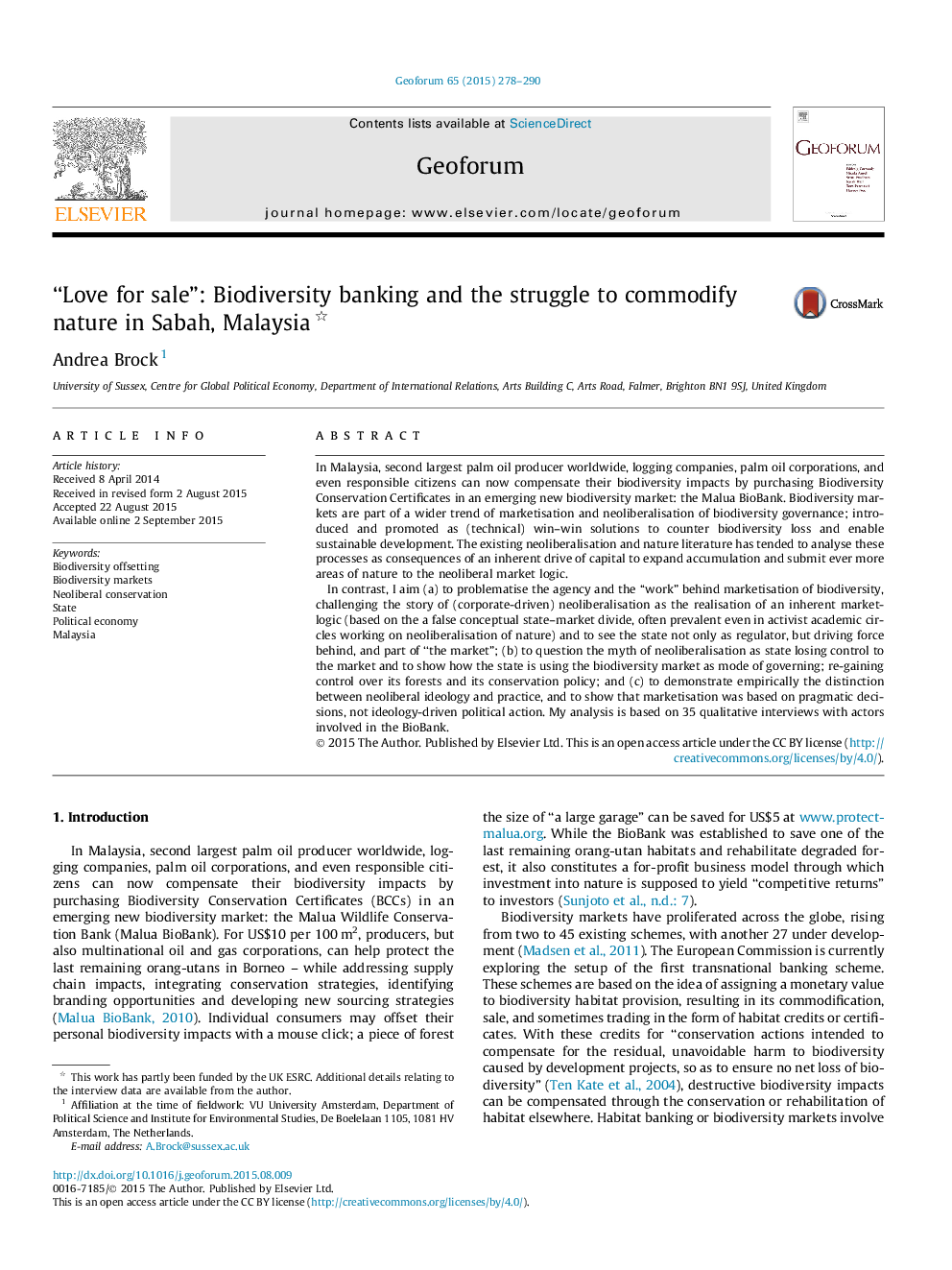| Article ID | Journal | Published Year | Pages | File Type |
|---|---|---|---|---|
| 5073812 | Geoforum | 2015 | 13 Pages |
â¢Marketisation has not led to loss of control by the state.â¢Instead, it led to the state regaining control over natural resource management.â¢State governs through market; market constitutes new mode of governance.â¢State actors invoked and instrumentalised power structures to “get things done”.â¢We need to rethink neoliberalisation and marketisation of nature.
In Malaysia, second largest palm oil producer worldwide, logging companies, palm oil corporations, and even responsible citizens can now compensate their biodiversity impacts by purchasing Biodiversity Conservation Certificates in an emerging new biodiversity market: the Malua BioBank. Biodiversity markets are part of a wider trend of marketisation and neoliberalisation of biodiversity governance; introduced and promoted as (technical) win-win solutions to counter biodiversity loss and enable sustainable development. The existing neoliberalisation and nature literature has tended to analyse these processes as consequences of an inherent drive of capital to expand accumulation and submit ever more areas of nature to the neoliberal market logic.In contrast, I aim (a) to problematise the agency and the “work” behind marketisation of biodiversity, challenging the story of (corporate-driven) neoliberalisation as the realisation of an inherent market-logic (based on the a false conceptual state-market divide, often prevalent even in activist academic circles working on neoliberalisation of nature) and to see the state not only as regulator, but driving force behind, and part of “the market”; (b) to question the myth of neoliberalisation as state losing control to the market and to show how the state is using the biodiversity market as mode of governing; re-gaining control over its forests and its conservation policy; and (c) to demonstrate empirically the distinction between neoliberal ideology and practice, and to show that marketisation was based on pragmatic decisions, not ideology-driven political action. My analysis is based on 35 qualitative interviews with actors involved in the BioBank.
